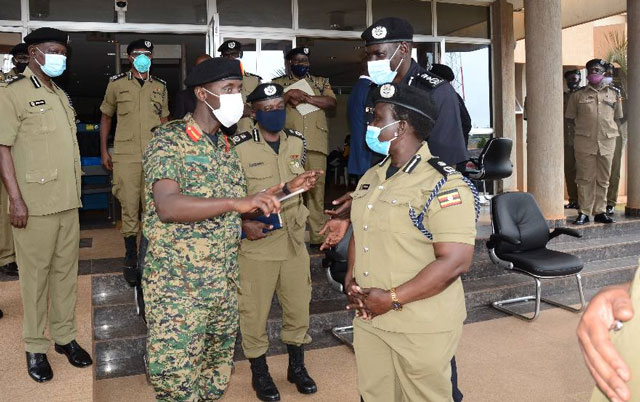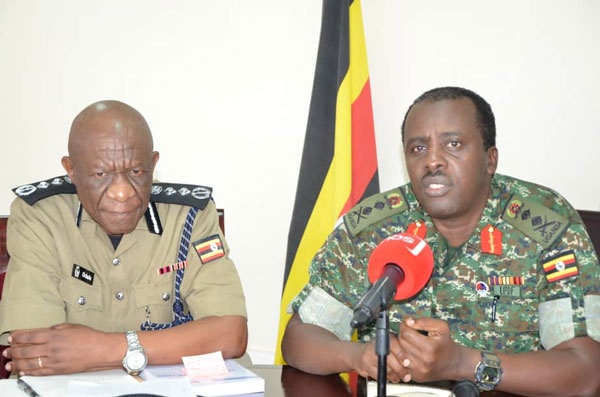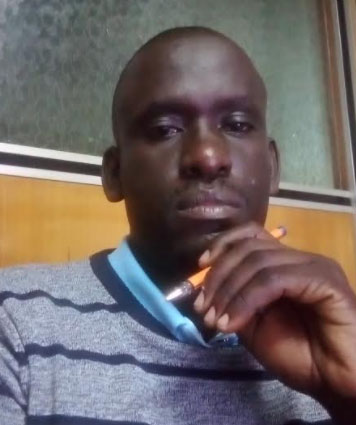
COMMENT | Samson Tinka | One area that most stakeholders in Uganda’s elections look forward to, is security during an elections cycle. Voting day is looked at as the most critical day and security deployment and operations are visible and under scanning by the population and observers.
And so it was in this election that saw one of the biggest and most visible security operations in Uganda’s recent history. There were many reasons in support of this, and I will break it down by looking at the strength, weaknesses, opportunities and threats during that period.
Visible deployment
November 18th riots painted a bad picture of the upcoming elections. There were even other confrontations between security and some candidates, yet voting day was months away. Ugandans were worried what will happen near, on voting day or immediately after. Many political pundits begun to proclaim disaster, painting a picture of the likely insecure situations during or close to elections. A few days to polling date, one of the candidates sent his close family members out of Uganda and this created more security uncertainties.
On the polling day, I left Kampala and headed 300kms down western Uganda to cast my vote. On the road, I only met four saloon cars and a few lorries and trucks coming from the opposite direction. This was another sign there was fear of what next after the polling day.
I cast my vote and set to return to Kampala around 2pm. By 6pm I was safe in my house and glued on TV to see what’s happening with first results. One notable event on that day, from Kampala to Kashari, Rwampala and back, the polling stations I visited, there was total peace, people lined up gently, police constables on polling station-maintained order, people voted and went away. I saw a few security patrols in Lyantonde, Masaka, Mbarara and Mpigi towns. The visibility of security guaranteed security to those who wanted to vote but also sent a signal to the bad guys that you are under close watch.
Mobilization of resources
Government mobilized a lot of resources especially vehicles from parastatals, and other government ministries. Vehicles enhanced mobility and ensured quick response. On Saturday of 16th Jan, 2 days after polling date, some people stopped traffic around Nsangi and started pelting stones to buses and other incoming cars. The police were on site in a few minutes. This was aided by either availability of transports and use of CCTV cameras installed. Pulling of resources especially vehicles supported security operations.

Team work
Security teams worked together. I saw on most trucks, pick ups and police patrol vehicles a combination of both army, police, LDUs, Prisons and sometimes wildlife officers. Such synergies are good and complement each other. If there is any lesson learnt from security during these elections, is that synergy is critical in seamless security operations. It should be maintained especially in highly insecure or risky areas especially in Kampala metro area.
Effective communication
The last piece on the strengths side was the communication bit. I think security communication engagements were sufficient. PROs, security chiefs engaged the population in the media to stay away from chaos and preached peace. Such conversations-built confidence within population that peace should be maintained at all cost.
However, not withstanding the strengths highlighted above, I think there is more that could have been done,
Delayed arrests
For reasons not well known, many people especially political actors committed crimes without police arresting them on the spot. Among the crimes included, abuse of traffic rules and regulations, violating curfew standing instructions, physical fights, disobeying police lawful orders. All these crimes should have led to immediate arrest and prosecution. Police in many instances left these criminals to walk free, all in the name of maintaining peace. This should not have happened. Going forward, on spot arrests must be effected. Certainly, security maybe had reasons for this but its prudent to have transgressors behind bars in a timely manner.
Police fighting between themselves
Ugly scenes of police fighting between each other were witnessed on more than one occasion. This involved security teams at a Katumba rally in Fort portal and that of Mao in eastern Uganda. One thing that is known in security is chain of command. Scenes of Police constables fighting with commissioned police officers are highly regrettable. Armed security officers should never fight especially when armed. The fight can take a different direction. Secondly, where there is an officer of a higher rank is, they assume command immediately. Therefore, in both or other police confrontations named above, the highest ranked police officer should have taken on the situation and the lower officers should have complied immediately.
Opportunities
Outside the weaknesses highlighted above, there are opportunities that our security officers especially police can grab and we continue with fully professionalizing of security officers. Among them is enhancing and supporting team work. It was visible that working together through collaboration and making the most of synergies, yields amazing results.
Police can continue to back on the CCTV network for quick identification of problem areas and enable quick response services. CCTV usage has numerous benefits. I have written about it before and I will continue to promote it because I know the associated benefits.
Police community policing
There are still visible opportunities associated with community policing. Uganda’s population visa a vis the number of police officers requires community policing approach if efficiency is to be realized. One police officer for over 600 Ugandans is a big call to make.
Finally, a number of threats were visible.
The Ugandan population is continually becoming non complaint to law, rules and security regulations. Civilians confronting armed security personnel is becoming a day-to-day activity. If not checked, this vice may create un wanted insecurity situation. Institutions hitherto expected to guide the society like Church also participated in non-compliance.
By all standards, Ugandan security teams demonstrated their ability in command, operations, response, engagements among other areas, before, during and after the January 14 Uganda elections.
This is was a good sign to the bigger population. How I wish you maintain the same standards. It’s a milestone worth noting and celebrating.
Aluta continua- The struggle continues.
 Samson Tinka is a safety and security expert.
Samson Tinka is a safety and security expert.
 The Independent Uganda: You get the Truth we Pay the Price
The Independent Uganda: You get the Truth we Pay the Price



